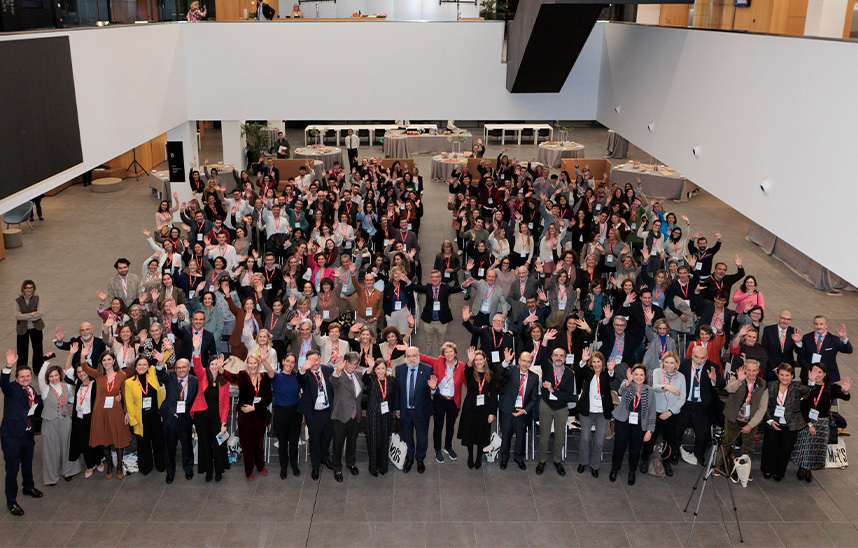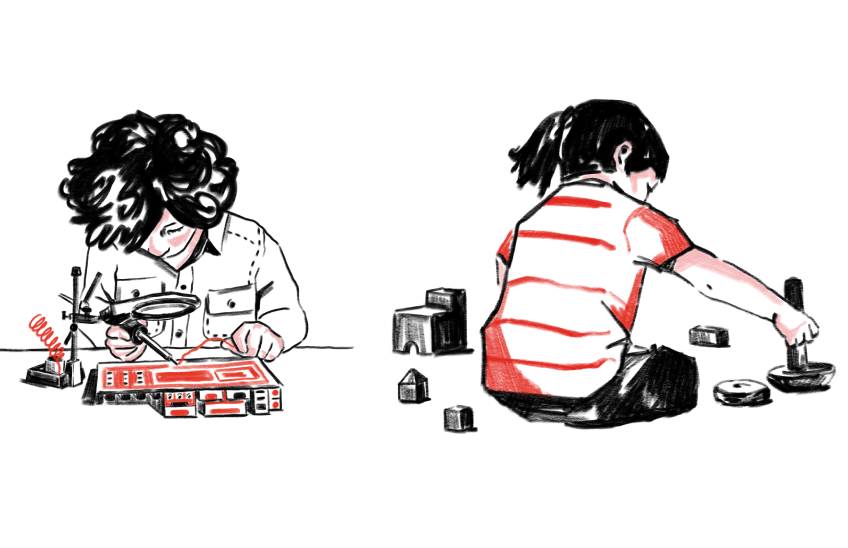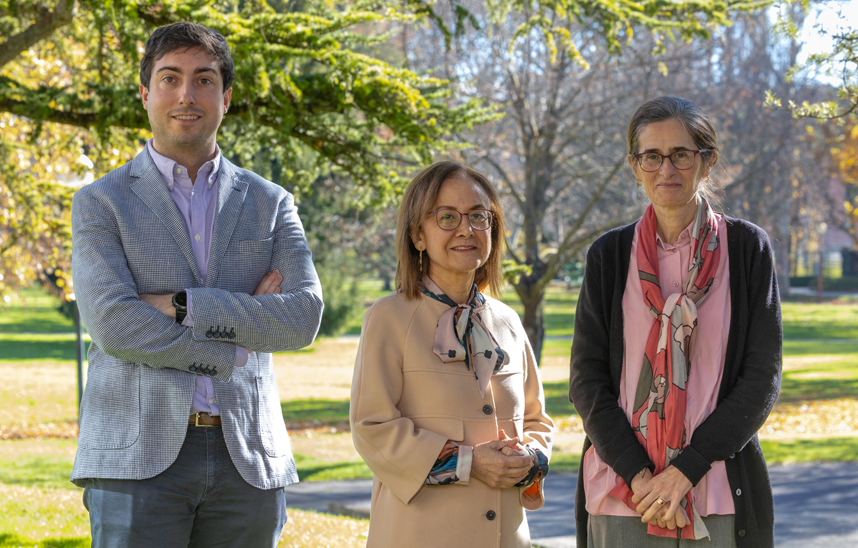One in four people will suffer from a mental health disorder in their lifetime and it will be the leading cause of disability by 2030
Psychologist María Jesús Álava calls for investment in emotional Education in young people and in the mental health of workers.

One in four people will suffer a mental health disorder in their lifetime and these will be the leading cause of disability in 2030. Spain is the country with the highest consumption of tranquilizers in the world and leads in absenteeism from work for mental health reasons, which account for 50% of cases. These are data offered by María Jesús Álava Reyes, director of the Álava Reyes Psychology Center, at a workshop held at the University of Navarra entitled 'Challenges in Mental Health: How to reduce absenteeism from work and promote wellbeing in young people'.
Organized by the Master's Degree in General Health Psychology of the academic center, in partnership with the Álava Reyes Psychology Center, the meeting, which was attended by more than 250 people, addressed the increase in the rate of absenteeism from work and its relationship with mental health problems, as well as the growth in the demand for psychological care of young people.
"There is a lot of talk about mental health, but very little is invested in it. Our wellbeing basically depends on having a good emotional Education ," said the expert. As she explained, the pandemic showed us how vulnerable we are: "The group that reacted best were the elderly, as opposed to adolescents and young people, who showed us, with their discomfort, that we have failed in the emotional Education of the new generations". María Jesús Álava pointed out that 70% of mental disorders start in the infant-juvenile stage and one out of every 20 adolescents is in status at risk of suicide. "If we are not able to invest in emotional Education , what are we giving to the new generations?" she asked.
The psychologist stressed the importance of training new generations of psychologists: "Never before have psychology professionals had so many work and never before have people come to the enquiry so badly".
Regarding absenteeism, he recalled that while a normal leave lasts about 8-10 days, the average of a mental health leave is 108 days per year. Also, in 7 years (2016-2023) work situations of incapacity due to mental issues have doubled. "The problem is that when we feel bad we go to the early care doctor and he does what he can: he gives us the leave and medication. If they had the ability to refer patients to mental health services, we would do much better. But the ratio of psychologists to psychiatrists is one third of what we would need."
According to the expert, being at leave is not the best option, since " work andsocial relations are often the best therapy". It is time, in her opinion, that companies also invest in the mental health of their workers: "It is an investment with very tangible benefits, since a mentally healthy team is a happier, more productive team, achieves more objectives and has fewer absences".
Absenteeism in young people: challenges and tools to combat it.
This was followed by a roundtable with the participation of Elkin Luis, Deputy Director of the Master's Degree in General Health Psychology and researcher of the School of Education and Psychology of the University of Navarra; Javier Urra, psychologist of the Prosecutor's Office of the High Court of Justice and of the Juvenile Court of Madrid; Francisco Santolaya, president of the committee General of Psychology of Spain; and María Jesús Álava.
Regarding the status of absenteeism among young people, Professor Luis explained that this phenomenon no longer refers only to leaving the work space; it also implies "not carrying out the responsibilities that each position entails". He also pointed out that "we must bear in mind that several generations coexist in the same companies: X, Z and Baby Boom", which, at times, can make relationships difficult, although they can also be a window of opportunity.
"There are organizations that have linked young people to become mentors for older people, helping them to apply AI to their jobs." In addition to these tools for the development staff and professional of young people, Professor Luis stressed the need to include tools for emotional intelligence and self-care, "which will lead to other scenarios on which to find new ways to address psychological discomforts."
For his part, Francisco Santolaya expressed the importance of psychologists being able to specialize in programs such as this one at postgraduate program : "Psychology is getting closer and closer to the pathological and forgetting the normal. Most people do not have a pathology; only problems that they are not able to solve with the personal, family or social resources available." For this reason, he pointed out that "we need more psychologists, better prepared and with good technologies at their disposal".
On the challenges facing young people today, Javier Urra shared some of his experiences at attention with them and pointed out the importance of vital attitude. "There is a question of passion. Many young people today have no expectations. What do we transmit to them? That they are going to live worse than us, that there are no job guarantees or that they will not be able to access housing. We have to transmit to adolescents and young people that we have to live with joy," he concluded.



